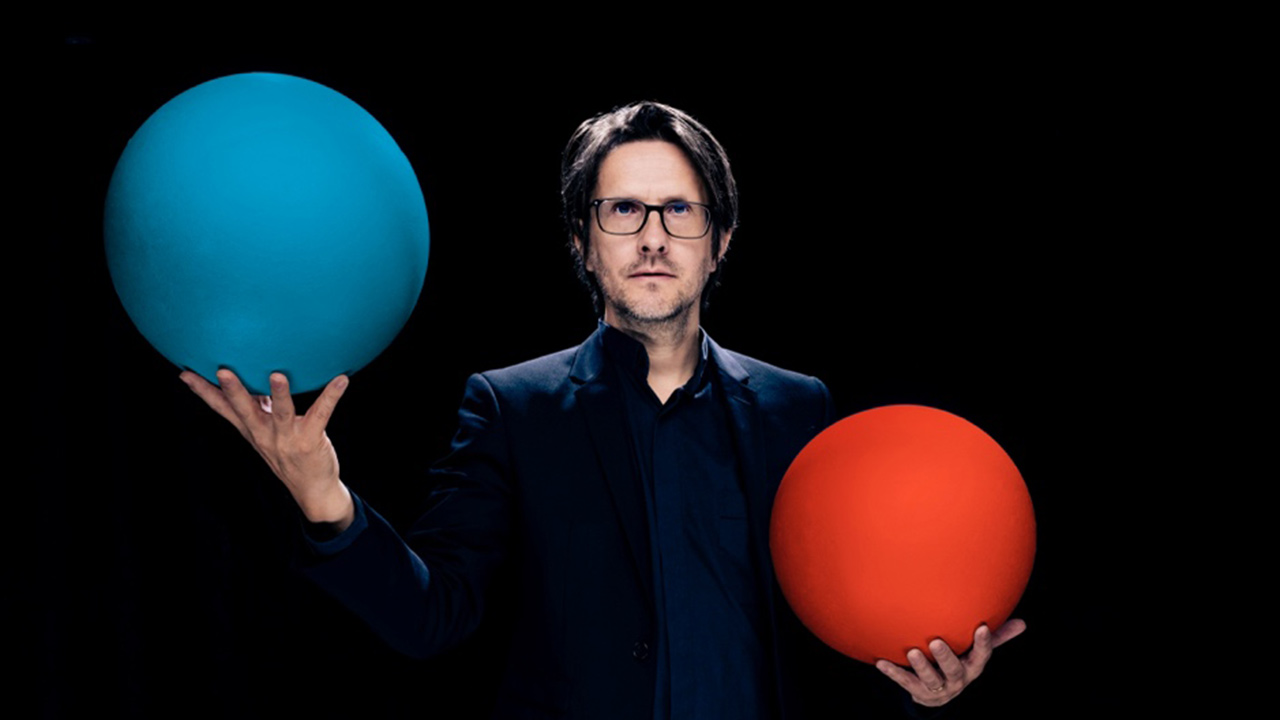“We did the whole album at festivals – the opposite of what you’re supposed to do. In some ways there was boldness, but it was also self-sabotage”: The Decemberists’ prog credentials

Select the newsletters you’d like to receive. Then, add your email to sign up.
You are now subscribed
Your newsletter sign-up was successful
Want to add more newsletters?

Every Friday
Louder
Louder’s weekly newsletter is jam-packed with the team’s personal highlights from the last seven days, including features, breaking news, reviews and tons of juicy exclusives from the world of alternative music.

Every Friday
Classic Rock
The Classic Rock newsletter is an essential read for the discerning rock fan. Every week we bring you the news, reviews and the very best features and interviews from our extensive archive. Written by rock fans for rock fans.

Every Friday
Metal Hammer
For the last four decades Metal Hammer has been the world’s greatest metal magazine. Created by metalheads for metalheads, ‘Hammer takes you behind the scenes, closer to the action, and nearer to the bands that you love the most.

Every Friday
Prog
The Prog newsletter brings you the very best of Prog Magazine and our website, every Friday. We'll deliver you the very latest news from the Prog universe, informative features and archive material from Prog’s impressive vault.
Grammy-nominated Portland, Oregon rockers The Decemberists cite Roxy Music and British folk as influences, delight in creating concept albums and embrace the concept of musical theatre. In 2018, as they released eighth album I’ll Be Your Girl, we asked leader Colin Meloy about the band’s prog credentials.
With its nagging synth arpeggio and punching, slashing glam rock guitars, Severed – the lead single from The Decembrists’ eighth album I'll Be Your Girl – sounds like Roxy Music running headlong into art rock ‘it’ girl St Vincent.
It sounds nothing, in fact, like the band from Portland, Oregon’s two previous records, each one rooted in American alt-folk-rock; or indeed like any of the four other wide-ranging releases that preceded them.
“Roxy Music was sort of our guiding star during the first week in the studio, though I think we moved pretty far astray from that,” says Colin Meloy, frontman and songwriter. “I think artists who work right at the edge of their understanding and ability can make the best work of their lives.
“When you’re working within your comfort zone, you might be making stuff that’s commercial or appealing and pays your bills – but is that the stuff that’s important? The things I’ve been most excited about are where I feel I’ve really pushed myself.” His comment could be an extract from a prog rock manifesto.
The Decemberists, who formed in 2000, have habitually taken a scenic route through music. In 2004, the quintet – completed by bassist Nate Query, keyboardist Jenny Conlee, guitarist Chris Funk and drummer John Moen – released a labyrinthine 18-minute track based on Irish epic The Táin. Their fourth album, 2006’s The Crane Wife, pivoted two detailed song cycles round a Japanese folk tale.
Meloy was a Smiths obsessive as he took a creative writing programme at the University of Montana. His tastes expanded to encompass the alt-country movement of the late 80s and the British folk revival of two decades earlier. Alongside the day job he’s issued a string of limited-edition covers EPs such as Colin Meloy Sings Morrissey and Colin Meloy Sings The Kinks. He’s also penned the Wildwood trilogy, a series of bestselling children’s books.
Sign up below to get the latest from Prog, plus exclusive special offers, direct to your inbox!
“As a kid, I was sort of lost in my own world a lot,” he explains. “My parents used to call me ‘the underwater boy’ because I was off in my own head so much. I’ve had that drive to create things and stories ever since then. It’s like it’s a muscle that has to get used.
“Early on with The Decemberists – particularly when we didn’t really have anyone listening to us – it felt very freeing to try new things. I’d think, ‘If I was in a metal band I would totally make a concept record about a mythological Irish text.’ Then it occurred to me that I was in a band, so what was stopping me?”
A record is a collection of songs, like a book of short stories. The best story collections have a thread binding them together
By 2007, the band (named after an 1825 revolutionary uprising in Imperial Russia) had accelerated to the point of having performed five shows accompanied by full orchestras, including a date at the Hollywood Bowl with the LA Philharmonic. That led on to their most elaborately conceived record, The Hazards Of Love, in 2009.
Starting off as a musical theatre piece, it ended up a full-blown concept album, replete with recurring themes, a parade of characters and an episodic narrative about a woman named Margaret and her shape-shifting lover. The title was lifted from a 1964 EP by stalwart English folkie Anne Briggs. It was something Jethro Tull might have conceived.
“I never really listened to that much Tull; I still haven’t,” Meloy says. “Jenny is really the Tull-head in the band. To my mind, The Hazards Of Love owed as much to the British folk revival artists – Fairport Convention, Shirley Collins and Anne Briggs – as it does to some of the 70s prog records that I encountered growing up.
“I just really liked the idea of playing with the genre and the medium a little bit; piece together a folk tale and folk archetypes and see what kind of story it would create. I think we’d established by then that we were comfortable playing with those longer-form narratives. The Tain had kind of set you up to be prepared for what was coming next.”
The Hazards Of Love did contain at least one explicit prog reference: the introductory keyboard pattern was a nod to the opening bars of Roger Glover’s 1974 fantasy rock opera The Butterfly Ball And The Grasshopper’s Feast, on which the Deep Purple man reinterpreted the children’s poem with help from David Coverdale, Ronnie James Dio, Glenn Hughes and others. “Mom got it from the library when I was a kid and I listened to it endlessly,” Meloy says.
The Decemberists took their magnum opus on the road and played it in full, front to back, not quite achieving the giddy heights of excess attained by Rick Wakeman doing his infamous King Arthur production on ice, but nevertheless very much in keeping with the trailblazing spirit of The Who’s Tommy and Pink Floyd’s The Wall, and running contrary to the austere mood of the times.
“Rick Wakeman did what?” Meloy gasps when mention is made of the caped one’s barmy escapade of 1975. “You’re kidding, right? Well, we missed an opportunity there! When we did The Hazards Of Love at festivals, it was the opposite of what you’re supposed to do. In some ways there was boldness there – but it was also an impulse to self-sabotage. It was a very interesting experiment; but coming out of it I felt all of a sudden that a cloud had lifted. I just wanted to go off and write music that people could sing along to.”
The result was 2011’s The King Is Dead, excellent but so REM-like in its alt-rock formality that guitarist Peter Buck made a guest appearance. Its singalong aspect was enticing enough for the album to debut at No.1 in America. Similarly straight-ahead, What A Terrible World, What A Beautiful World followed in 2015 and became a Top 10 US hit.
I didn’t want to make a topical record – I didn’t know if I was the guy to do that – but it’s really unavoidable that this stuff comes through
By contrast, there are moments – even whole songs – on I’ll Be Your Girl where Meloy’s deep and mellifluous voice is the sole tick familiar to The Decemberists. New producer John Congleton has blessed the band with the slick surfaces and noir-ish undercurrents of his other clients Lana Del Rey and St Vincent. Meanwhile, on propulsive tracks like Everything Is Awful and We All Die Young, Meloy isn’t so much off with the fairies as staring down the barrel of Trump’s America.
He describes the mood of the album as a “nihilistic disco apocalypse,” which suits it very well. “It couldn’t not be,” he says of this state-of-things subtext. “It’s such a calamity that we’re witnessing right now. Even though I didn’t want to make a topical record – I didn’t know if I was the guy to do that – but it’s really unavoidable that this stuff comes through.
“Making every record, you go into the studio as armed as you can be; sometimes with a pretty good idea of what you’re going to do, sometimes not. This time I had a handful of songs. Some of them felt that they fit together better than others. The challenge was to find the thread that connected them.
“A record is a collection of songs, like a book of short stories. But I believe the best short story collections are the ones where there’s some a thread binding them together that means you read it start-to-finish in that order. That’s how I’ve always approached sequencing records.”
He remains liable to vault for something otherworldly and infinite-sounding; and a good example of that is the peak point of I’ll Be Your Girl, a meandering eight-minute, two-part extravaganza titled Rusalka, Rusalka / Wild Rushes that fixates on two of his pet subjects – bodies of water and the other-beings that may lurk within.
It picks up where the band left off in 2017 with The Queen Of Hearts, released under the name Offa Rex, a Grammy-nominated collaboration with English folk singer Olivia Chaney. It also suggests that Meloy isn’t done with exploring and adventuring.
“I still want to do a musical theatre piece,” he says. “I’ve made steps towards that in the past but then kind of retreated. It’s been a question of trying to find a way in.
“In some ways, as a band I feel like we’re on our own island. Not because we stand alone, necessarily, but as much because I’m deeply insecure in terms of how I think our band is regarded by other people.
Paul Rees been a professional writer and journalist for more than 20 years. He was Editor-in-Chief of the music magazines Q and Kerrang! for a total of 13 years and during that period interviewed everyone from Sir Paul McCartney, Madonna and Bruce Springsteen to Noel Gallagher, Adele and Take That. His work has also been published in the Sunday Times, the Telegraph, the Independent, the Evening Standard, the Sunday Express, Classic Rock, Outdoor Fitness, When Saturday Comes and a range of international periodicals.






